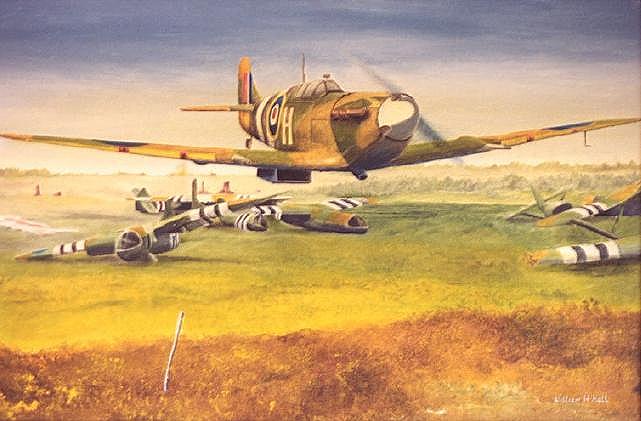








Normandy Landing
36" x 48" x 2" Oil on Canvas, framed.

The British Horsa glider shown on the ground in
this painting could carry as many as 30 troops . It was constructed almost
completely of wood. Its tow line harness yoke was attached to both wings,
unlike the usual tow line attached to the nose of the aircraft.
Perhaps the Horsa's finest hour came in the early
stages of the Normandy Invasion when six Horsas loaded with infantry descended
in the darkness of the morning of June 6, 1944, to capture and hold bridges over
the Orne and Caen Canal, bridges that would allow German reinforcements to
counterattack the Normandy landings. Carrying a company of the Oxford and
Buckinghamshire Light Infantry, six Horsas piloted by members of the famed
British Glider Pilot Regiment found their insertion points. This
exceptionally difficult and dangerous mission, so critical to the success of the
beach landings, was accomplished due in no small part to the skilled airmanship
of the six Horsa aircrews.
 Canadian
Aviation Artists Association
Canadian
Aviation Artists Association




 Canadian
Aviation Artists Association
Canadian
Aviation Artists Association